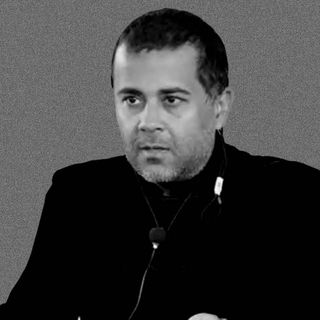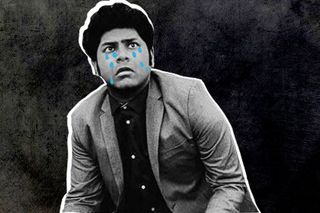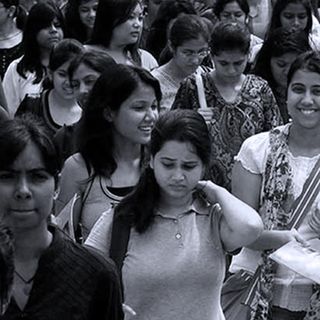
India’s #MeToo Apologies Are Rolling In. Do Any Warrant Forgiveness?
Let’s examine these the first (and tiniest) steps toward atonement.

Since India’s #MeToo moment took off on Twitter last week, the accusations have been flooding in — and correspondingly, a little more slowly, the apologies have been rolling out.
Back when the #MeToo movement started earlier this year in the US, we took a look at how many of the accused men’s apologies left much to be desired. Are Indian men doing it any better?
Got feelings about #MeTooIndia? Let them out by taking our survey.
The accused.
Apologies from the accused men, so far, range from the Utsav Chakraborty School of Public Meltdown, to the Rajat Kapoor School of Public Equivocation, to Meghnad Bose’s School of Public Groveling. Let’s look at them one by one.
Utsav Chakraborty, judging by his tweets (which appear to have since been deleted), is hurt and truly bewildered by this turn of events and 100% focused on justifying his own actions. The only hint of an apology is one in the classical sense — from the Greek apologia, a speech in one’s own defense. On the flip side is poor Rajat Kapoor, who’s just trying to be a good man and maybe making mistakes in his quest for goodness, who knows? He doesn’t! But if he has caused another person pain, he’s deeply sorry. If. Please accept his apology. If.
And then, there’s The Quint journalist Meghnad Bose, who has thrown himself at the feet of his accusers. He is “unconditionally apologetic” and promises to “unlearn [his] misogyny and sexism, and learn to do better.” And invites the women he has harassed to discuss their experience with him further — only if they’re comfortable. It’s the best of a measly lot, but it does come across a bit flailing — as if repeating ‘sorry’ enough times will magically make the nightmare go away.
And finally, there’s the complete lack of statement or apology from media men like Prashant Jha, and K R Sreenivas, who each are facing multiple accusations of sexual misconduct. Not to mention men like Vikas Bahl, who is accused of sexual assault.
Worth forgiving? No. The potential exception is Meghnad Bose — but only if he actually lives up to unlearning his misogyny and sexism, which isn’t an easy thing to do and requires real effort and commitment. Let’s see if he sticks it out, or continues his hypocrisy in writing about gender issues while failing to introspect.
The organization.
#MeToo in part kicked off on the accusations against comedian Utsav Chakraborty, and quickly spread to include his colleagues at All India Bakchod (AIB), Tanmay Bhatt and Gursimran Khamba. The organization has issued three statements in four days. To summarize all of them, the organization: repeatedly apologizes for “messing up;” apologizes for creating a workplace culture toxic to women; delists its videos that feature Chakraborty; tries to explain its reasoning in continuing to work with the likes of Chakraborty; admits that that reasoning sounds like an excuse; severs ties to Chakraborty; severs ties to co-founder and former CEO Bhatt; places Khamba on temporary leave; promises it will be working to re-imagine the company.
Worth forgiving? As initial responses go, it checks the right boxes, suggesting someone within the collective is either very genuine, very savvy, or both. And as initial responses go, it’s difficult to expect anything more detailed. But forgiveness has to be earned, and when the culture of an entire organization appears problematic (to say the least), what counts most is what comes next. “Truthfully, we do not know what this means for the future of AIB or if there is one.” If there is one depends much on what that re-imagining looks like. If the group can listen, learn, and actually change its culture (rather than pay lip service to inclusivity) then it may deserve a second chance. Until that time, forgiveness is pending.
The complicit.
One of the biggest frustrations with #MeToo, particularly within Bollywood, is the lack of support from industry insiders, especially male insiders. The ones who may not actively harass, but who observe it and do nothing (or little), who benefit from a system so stacked against women. Clearly, many are still on the side of the harassers (as last week’s image of Nana Patekar warmly surrounded by cast and crew proves). But some are speaking out — not so much issuing an apology, but at least taking a stance. The two biggest names to do so, so far, are Anurag Kashyap and Hrithik Roshan.
Kashyap has detailed his efforts to oust Bahl and support the former Phantom employee who has accused Bahl of sexual assault. It’s less an apology than a defense. And here’s the thing — it certainly appears, at least from his perspective, that Kashyap tried to support the woman. But his statement is almost ruined by its ending, wherein he runs perilously close to conflating the problem of sexual harassment and predation within Bollywood, to the exploitation he feels as an artist who lacks understanding of law and finance within Bollywood: “And this is the real problem with this industry. This industry is extremely ill-equipped to handle matters such as sexual harassment, copyright, censorship and all the things we put ourselves in dock with.” Anurag, bro… one of these things is not like the others. Your pain at feeling under-equipped to help your assaulted employee is not comparable to hers.
Roshan’s statement offers no admission or explanation of complicity to an abusive Bollywood culture. Instead, it spurns the possibility of continued work with someone “guilty of such grave misconduct.” It is a brief statement calling for zero tolerance of sexual misconduct, starting with his current film (co-produced and directed by Bahl). Refreshing, if incomplete.
Worth forgiving? Arguably, forgiving and welcoming complicit men into the #MeToo fold is necessary; it’s a sad but true fact that a system stacked in men’s favor, a system that facilitates abuse of women, will not change unless the men who are not actively abusive, but who benefit from staying silent, start speaking up and helping dismantle it. It’s tempting to see these statements as PR ploys, and they probably are. But that doesn’t mean they’re not important, landmark statements — statements that could do much to help the #MeToo movement, if they’re followed by advocacy, both public and behind the scenes. Worth forgiving? It’s tough to say; neither actually apologizes for their complicity. But it’s worth taking the statements at face-value, watching what they’ll do next — and expecting, rather than being surprised and grateful for, their further action.
In the end what determines whether a man’s career or image can be forgiven and rehabilitated post-#MeToo is not just the degree of offense, but also the effort made to make amends. Public apologies (such as they are) and statements are necessary, but they’re the first and frankly the tiniest steps toward atonement and re-earning any semblance of goodwill. Journalist Rega Jha said it best, tweeting in response to AIB’s third statement yesterday: “Apology is not enough, this action is necessary but not enough. I look forward to seeing reparations.”
As do all women.
Liesl Goecker is The Swaddle's managing editor.
Related


Does It Hurt More When A Woke Feminist Bro Turns Out To Be A Predator?
